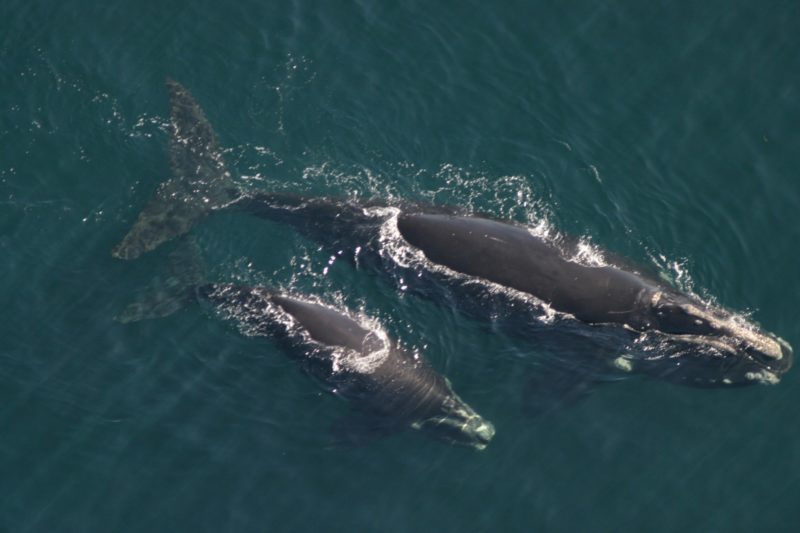Legislation to provide $5 million in annual federal funding for reducing North Atlantic right whale deaths from ship strikes and fishing gear entanglement was introduced in the U.S. Senate Tuesday.
Sens. Cory Booker (D-N.J.), Johnny Isakson (R-Ga.) and Tom Carper (D-Del.) co-sponsor S-2453, dubbed the “Scientific Assistance for Very Endangered (SAVE) Right Whales Act.” The measure would authorize $5 million in annual grant funding over the next 10 years for cooperative projects between state governments, nongovernmental organizations and the shipping and commercial fishing industries.
With a surviving population of around 400 animals, the North Atlantic right whale is one of the world’s most endangered species. Ship strikes and fishing gear entanglement are major causes of mortality. Canada's Gulf of St. Lawrence has been particularly deadly in recent summers and Canadian authorities have enforced vessel speed restrictions in an effort to reduce the risk, which has led to 28 deaths in the last two years, according to NOAA.
Meanwhile, NMFS and U.S. fishermen are grappling with demands to reduce mortality from fishing gear. The Maine Lobstermen’s Association withdrew its support from the NMFS plan this month, asserting that proposed drastic cuts in trap lines would not be effective in reducing mortality.
In its own analysis of government data, the MLA found ship strikes account for 48 percent of whale injuries and deaths, followed by entanglements in Canadian snow crab gear at 31 percent. Gillnets and other nets are implicated in 13 percent of incidents, while documented U.S. trap gear is involved in 4 percent and gear of unknown origin in the remaining 4 percent.
The SAVE Right Whales Act would provide grant funding to “develop, test and implement innovative technologies and other strategies to reduce the two main causes of North Atlantic right whale deaths: entanglement with fishing gear and vessel collisions,” the Natural Resources Defense Council said in a joint statement with other environmental groups supporting the measure.
“Researchers, fishermen and government officials coming together is the only way that we will have a long-term impact on the future of North Atlantic right whales,” said Vikki Spruill, President and CEO of the New England Aquarium. “This proposed bill is a great step toward finding solutions that will protect both whales and the livelihoods of the fishermen who work on the ocean every day.”







